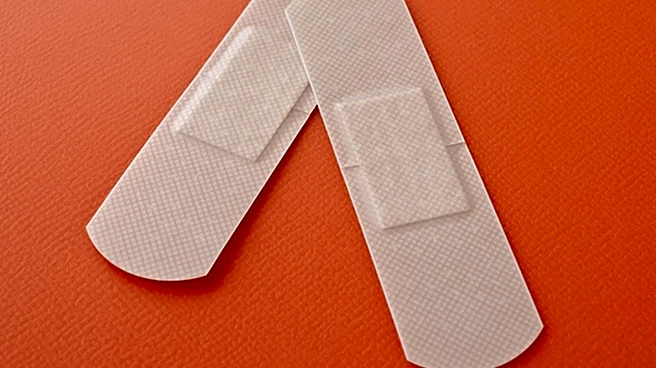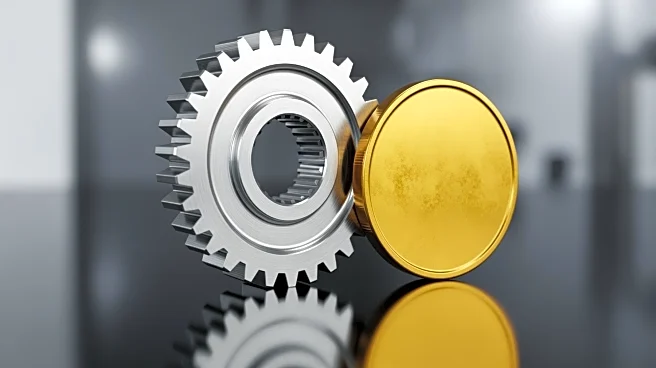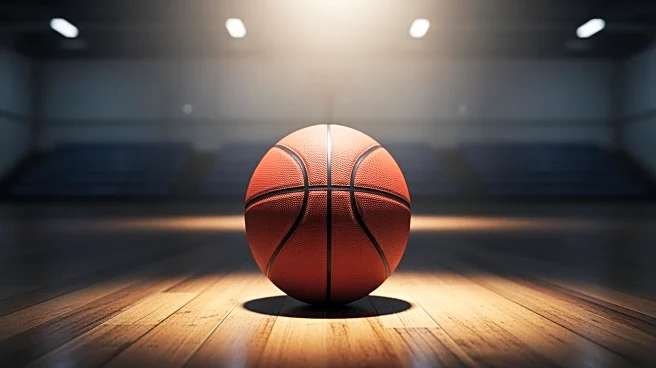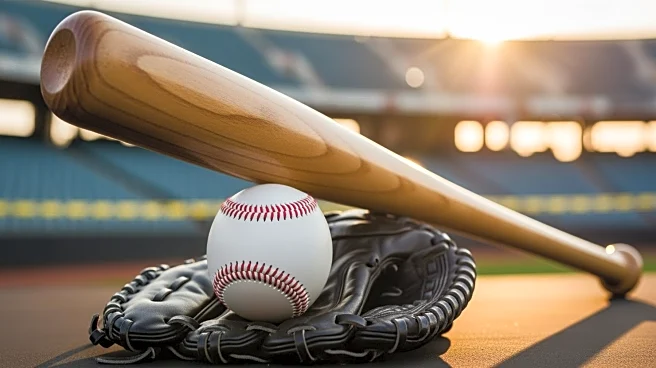What's Happening?
Scientists in China have developed a new 'bone glue' called Bone-02, which can heal fractures in just three minutes with a single injection. Traditionally, fractures require months to heal and often involve invasive surgeries with metal plates and screws. The bone glue, developed by a research team, aims to provide a quick and precise fixation even in blood-rich environments. In a trial case, a patient with a wrist fracture was treated with Bone-02 through a 3 cm incision, resulting in complete healing within minutes. Inspired by the adhesive properties of oysters, the glue forms strong bonds in moist and dynamic conditions, and can be naturally absorbed by the body, eliminating the need for a second surgery to remove implants.
Why It's Important?
The development of Bone-02 represents a significant advancement in orthopedic treatment, potentially reducing recovery times and surgical complications for patients with fractures. This innovation could transform the approach to treating bone injuries, offering a less invasive and quicker alternative to traditional methods. The ability to heal fractures rapidly could benefit patients by minimizing downtime and reducing healthcare costs associated with prolonged recovery and multiple surgeries. Additionally, the bio-compatible nature of the glue may lead to fewer infections compared to metal plate procedures, enhancing patient safety and outcomes.
What's Next?
Further clinical trials and regulatory approvals are likely necessary before Bone-02 can be widely adopted in medical practice. Researchers may continue to refine the formula and explore its applications in various types of fractures and orthopedic conditions. The medical community and healthcare providers will be closely monitoring the progress and effectiveness of this new treatment. If successful, Bone-02 could be integrated into standard fracture care protocols, potentially influencing global orthopedic practices.
Beyond the Headlines
The development of Bone-02 highlights the potential for biomimicry in medical innovations, where natural processes inspire technological advancements. The use of oyster-inspired adhesives could pave the way for other bio-inspired medical solutions, promoting sustainable and efficient healthcare practices. This approach may also encourage further research into environmentally friendly and body-compatible materials for medical use.









